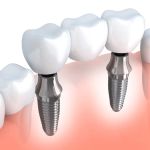How to Treat Receding Gums Naturally
Receding gums is a common issue that many people face, often leading to sensitive teeth, discomfort, and even tooth loss if left untreated. Fortunately, there are natural ways to manage and even reverse gum recession. In this article, we will explore some effective natural remedies and practices to improve your gum health and maintain a beautiful smile.
1. Understand the Causes of Receding Gums
Before diving into treatment options, it’s important to understand what causes receding gums. Several factors can contribute to gum recession, including:
- Poor Oral Hygiene: Lack of regular brushing and flossing can lead to plaque buildup, which damages the gums.
- Gum Disease: Gingivitis and periodontitis are common culprits, often caused by bacterial infections.
- Genetics: Some people may be more predisposed to receding gums due to their genetic makeup.
- Age: As we age, our gums naturally begin to recede, although this process can be accelerated by poor dental care.
- Teeth Grinding: Bruxism can put excessive pressure on the gums, causing them to recede over time.
Identifying the root cause of your gum recession can help you choose the most effective treatment options, whether natural or professional.
2. Natural Remedies for Receding Gums
If you're looking for natural solutions, there are several remedies that can help soothe, restore, and protect your gums. Here are some of the most effective treatments:
2.1. Oil Pulling
Oil pulling is an ancient Ayurvedic practice that involves swishing oil in your mouth to remove bacteria and promote gum health. Coconut oil is particularly effective due to its antimicrobial properties. To perform oil pulling:
- Take a tablespoon of coconut oil and place it in your mouth.
- Swish it around your mouth for 10-15 minutes, ensuring it reaches all areas of your gums.
- Spit the oil out and rinse your mouth with warm water.
- Repeat daily for the best results.
Oil pulling helps reduce bacteria, plaque buildup, and inflammation, all of which can contribute to gum recession.
2.2. Aloe Vera Gel
Aloe vera is well known for its healing properties and can be beneficial in treating receding gums. The gel contains anti-inflammatory and antibacterial agents that can reduce gum swelling and promote tissue regeneration. You can apply aloe vera gel directly to your gums:
- Take fresh aloe vera gel from the plant or use store-bought pure aloe vera gel.
- Apply the gel to your receding gums and massage it gently.
- Leave it on for a few minutes before rinsing with warm water.
- Use this remedy twice daily for optimal results.
Aloe vera also soothes irritation, helping to reduce discomfort from gum recession.
2.3. Green Tea
Green tea is packed with antioxidants that can help promote oral health. Drinking green tea regularly can reduce inflammation and combat bacteria in the mouth. It’s particularly beneficial for those with gum disease, as it can help prevent further gum recession.
- Brew a cup of green tea and let it cool.
- Swish the tea around in your mouth for a minute or two.
- Spit it out and rinse your mouth with water.
- Drink green tea once or twice a day to reap its benefits.
Incorporating green tea into your daily routine not only helps reduce gum recession but also supports your overall oral health.
2.4. Salt Water Rinse
A simple saltwater rinse is an excellent way to soothe irritated gums and reduce inflammation. Salt has natural antibacterial properties, making it an effective solution for cleaning the mouth and reducing the risk of infection.
- Dissolve half a teaspoon of salt in a glass of warm water.
- Swish the solution around in your mouth for 30 seconds to 1 minute.
- Spit it out and repeat once or twice a day.
This remedy helps to promote healing in the gums and provides temporary relief from pain caused by receding gums.
3. Preventing Receding Gums
While treating receding gums is important, prevention is always better than cure. Here are some key habits to help prevent gum recession:
- Brush and Floss Regularly: Brushing your teeth at least twice a day and flossing daily can prevent plaque buildup and reduce the risk of gum disease.
- Avoid Aggressive Brushing: Brushing too hard can wear away the enamel on your teeth and cause your gums to recede. Use a soft-bristled toothbrush and gentle strokes.
- Visit Your Dentist Regularly: Professional cleanings and checkups are essential for maintaining gum health and identifying potential issues early.
- Use Mouthwash: An antimicrobial mouthwash can help reduce plaque and bacteria that contribute to gum recession.
- Address Teeth Grinding: If you grind your teeth at night, consider using a mouthguard to prevent excessive pressure on your gums and teeth.
By incorporating these habits into your daily routine, you can help protect your gums and avoid further recession.
4. When to Seek Professional Help
Although natural remedies can be effective, severe cases of gum recession may require professional treatment. If your gums continue to recede despite home remedies, or if you experience significant pain or bleeding, it’s important to consult with a dentist. They may recommend treatments such as:
- Scaling and Root Planing: A deep cleaning procedure that removes plaque and tartar from below the gum line.
- Gum Grafting: A surgical procedure that restores gum tissue lost to recession.
- Laser Therapy: A non-invasive treatment that can reduce gum recession and stimulate tissue regeneration.
Early intervention is key to preventing further damage to your gums and preserving your dental health.







 Perry L Jeffries DDS and Associates PA - Raleigh2.0 (53 review)
Perry L Jeffries DDS and Associates PA - Raleigh2.0 (53 review) Almond Dental Maple Grove4.0 (413 review)
Almond Dental Maple Grove4.0 (413 review) Waterford Dental Health4.0 (1118 review)
Waterford Dental Health4.0 (1118 review) Bismarck Advanced Dental and Implants4.0 (657 review)
Bismarck Advanced Dental and Implants4.0 (657 review) Chalet Dental Care5.0 (739 review)
Chalet Dental Care5.0 (739 review) Straumann USA LLC3.0 (10 review)
Straumann USA LLC3.0 (10 review) The Importance of Oral Health Education During Pregnancy for a Healthy Pregnancy
The Importance of Oral Health Education During Pregnancy for a Healthy Pregnancy Best Tips for Brushing Your Teeth Properly for Healthy Gums: Essential Techniques for Oral Health
Best Tips for Brushing Your Teeth Properly for Healthy Gums: Essential Techniques for Oral Health Why Skipping Dental Checkups Can Lead to Bigger Oral Health Problems
Why Skipping Dental Checkups Can Lead to Bigger Oral Health Problems Advantages of Porcelain Dental Restorations
Advantages of Porcelain Dental Restorations How Can Diabetes Cause Tooth and Gum Problems? Preventing and Managing Oral Health Issues
How Can Diabetes Cause Tooth and Gum Problems? Preventing and Managing Oral Health Issues Healthy Habits for Promoting Good Oral Health and Hygiene: Tips for a Healthy Smile
Healthy Habits for Promoting Good Oral Health and Hygiene: Tips for a Healthy Smile